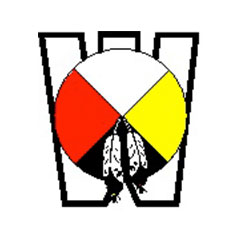West Region Child & Family Services


Agency Overview
West Region Child & Family Services Inc. is a First Nation child and family services organization comprised of nine communities.
We have a vision of healthy and vibrant First Nations communities, families, and individuals who work together to nurture, love and respect their children.
We work to help our families and communities to provide a safe and nurturing envirnoment for children, where there is a Circle of Care around each child.
WRCFS delivers a full range of child and family services and has been involved in broader child welfare issues in liaison with numerous other agencies to address Indian Child Welfare.
« Back to Agency Overview | Career Opportunities »
Communities We Serve
West Region Child & Family Services Inc. provides services to 9 member First Nations, including 3 off-reserve sites:
- Brandon
- Dauphin
- Winnipeg
- Ebb & Flow First Nation
- Gambler First Nation
- Keeseekoowenin First Nation
- O-Chi-Chak-Ko-Sipi First Nation
- Pine Creek First Nation
- Rolling River First Nation
- Skownan First Nation
- Tootinaowaziibeeng First Nation
- Winnipeg
Programs
The agency is an extension of the kinship systems in our communities. We focus on prevention and support, and incorporate traditional values and teachings in our child protection and preservation practices. We provide the following programs to achieve these ends:
Quality Assurance Program
In conjunction with SFNNC, the WRCFS QA Manager works closely with the Agency to ensure that it is compliant with CFSIS and IM, regulations, standards and any reviews as determined by agency or authority. The QA Manager works with Agency Senior Management and extensively with Agency Strategic Service Planning and Preparation.
Education, Training & Culture
The Coordinator organizes and supports Agency Training and Education, writes proposals for training and projects, and keeps track of the training of all staff within the agency. The Coordinator is also responsible for providing cultural awareness either through internal or external resources within agency or communities. As part of this program, the Coordinator is also a part of the WRAPAROUND Team.
Community Based Programs/Urban Services
Includes a variety of services which are managed by Program Directors, North/South and they are as follows: mandated services, family enhancement, after hours service delivery, case transfers, staffing, training, transitional planning (extension of care), community partnerships, protection services.
In addition, communities provide prevention programs such as, parenting, young mom programs, sharing circles, family management, life skills, domestic violence awareness programs, anger management, child abuse awareness, youth programs, day camps, family camps, youth camps, welcome home baby programs, women’s/men’s groups for healing, public education awareness events, National Child Day, cultural days, ceremonies, breakfast programs, and cost-sharing events with other community partners.
Oshiiwaadizag Mino Niigaaniiwad
Youth Leading In A Good Way: This is a WRAPAROUND Program for Youth which is a five year program funded through NCPC and is coming to an end in 2018. The program staff work with youth who are considered high risk due to behavioural issues that they struggle with either through gang involvement and/or risk of being gang involved. The staff provides supports to youth who may be in a state of crisis or upset with a number of issues and often help de-escalate high risk behaviours that could potentially be harmful.
Youth are encouraged to have a “voice and choice” in their lives thus creating a better space to be heard as to what they want to do, as the worker steers them to learning about making better choices. The key areas to help youth achieve their goals are as follows: reduce gang-related violence and crime, increase youth employability, leadership and life skills, education, and connection to culture, land and community.
Reclaiming Our Voices
Since 1999, WRCFS has offered a program for women which is designed to provide an educational, cultural, spiritual, and positive healing experience. These women have struggled with addictions, family violence, parenting issues, sexual abuse, and intergenerational residential school trauma. This gathering provides a variety of presentations styles to help women begin their healing journey through traditional ceremonies, testimonials, workshops, healing circles, sweat lodges, and land-based teachings.
Alternate Care/Gaa Gii Kweng Programs
The Alternate Care Unit provides alternative placement resources for children who are unable to remain in their homes of origin, and who require a safe and nurturing environment. These resources can be emergency, short-term or long-term placements. The primary responsibility of the unit, in working closely with the CFS teams, is to identify and license foster homes within our communities and or extended families for the placement of children. Although recruitment and development of agency resources in the nine First Nations communities is the principle goal, placement resources off-reserve are also needed and considered.
The main areas of responsibility for the Alternate Care unit includes active resource recruitment strategies, ongoing orientation training to foster parents, foster home studies and assessments, foster home annual reviews and reassessments, kinship care assessments, providing support to foster families through advocacy/networking; foster parent appreciation days, POS placements, providing foster families with education and training opportunities, and completing court-ordered assessments, when required.
Abinoojiiyeg Naa Da Maa Gewin
Has been operating as a regional program since 1984 and provides consultation and investigation in child abuse matters in accordance with the Manitoba Child and Family Services Act and the Manitoba Child Abuse Regulations. The Abin Unit also presents all child abuse cases to the WRCFS Child Abuse Committee on a monthly basis. The Unit also provides workshops to staff and local communities.
Human Resources
Oversees the management of personnel files, the payroll function, time and attendance, record keeping, data base, administration of the group insurance, employee assistance, and pension plans as well as the operation of the Safety and Health Program and provides support services for employees and management.
Finance and Information Technology
oversees the Agency’s financial processing and reporting functions/requirements which include foster parent maintenance payments, child maintenance billings, statistics, staff and operating expenses and financial reporting to management, Board of Directors, and funders. They also oversee the Agency computer hardware/software and office equipment requirements within the (SFNNC)VLAN environment. VLAN is abbreviation for Virtual Local Area Network which was implemented in WRCFS in 2012. This computer operating environment is managed by the SFNNC and staff of agencies under their jurisdiction and the Agency is set up as users on the VLAN and have to log on to access servers that contain the Agency computer file. Servers are physically located at SFNNC office.
-
We work to help our families and communities to provide a safe and nurturing envirnoment for children, where there is a Circle of Care around each child.

